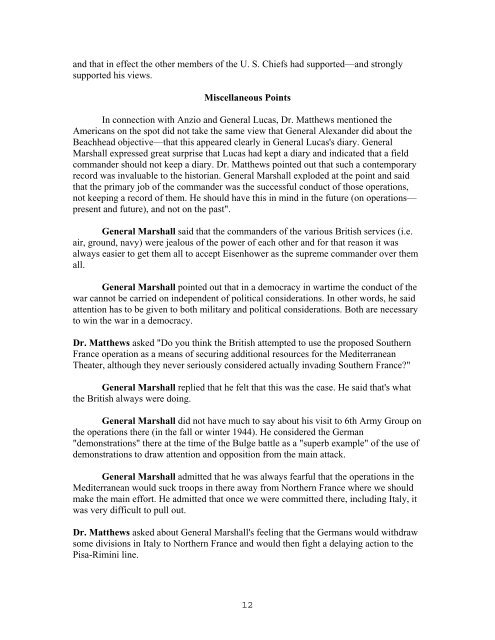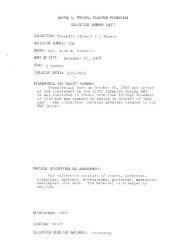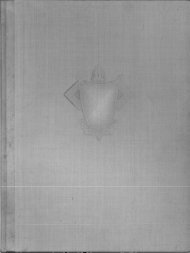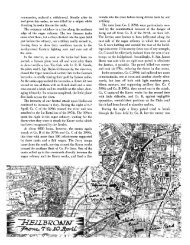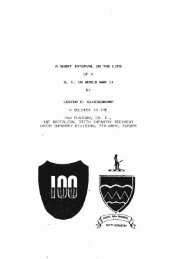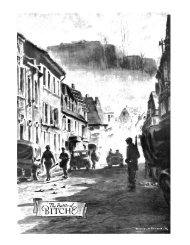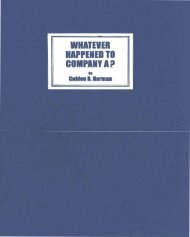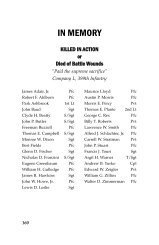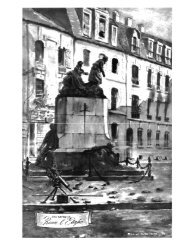July 25, 1949 - The George C. Marshall Foundation
July 25, 1949 - The George C. Marshall Foundation
July 25, 1949 - The George C. Marshall Foundation
Create successful ePaper yourself
Turn your PDF publications into a flip-book with our unique Google optimized e-Paper software.
and that in effect the other members of the U. S. Chiefs had supported—and strongly<br />
supported his views.<br />
Miscellaneous Points<br />
In connection with Anzio and General Lucas, Dr. Matthews mentioned the<br />
Americans on the spot did not take the same view that General Alexander did about the<br />
Beachhead objective—that this appeared clearly in General Lucas's diary. General<br />
<strong>Marshall</strong> expressed great surprise that Lucas had kept a diary and indicated that a field<br />
commander should not keep a diary. Dr. Matthews pointed out that such a contemporary<br />
record was invaluable to the historian. General <strong>Marshall</strong> exploded at the point and said<br />
that the primary job of the commander was the successful conduct of those operations,<br />
not keeping a record of them. He should have this in mind in the future (on operations—<br />
present and future), and not on the past".<br />
General <strong>Marshall</strong> said that the commanders of the various British services (i.e.<br />
air, ground, navy) were jealous of the power of each other and for that reason it was<br />
always easier to get them all to accept Eisenhower as the supreme commander over them<br />
all.<br />
General <strong>Marshall</strong> pointed out that in a democracy in wartime the conduct of the<br />
war cannot be carried on independent of political considerations. In other words, he said<br />
attention has to be given to both military and political considerations. Both are necessary<br />
to win the war in a democracy.<br />
Dr. Matthews asked "Do you think the British attempted to use the proposed Southern<br />
France operation as a means of securing additional resources for the Mediterranean<br />
<strong>The</strong>ater, although they never seriously considered actually invading Southern France?"<br />
General <strong>Marshall</strong> replied that he felt that this was the case. He said that's what<br />
the British always were doing.<br />
General <strong>Marshall</strong> did not have much to say about his visit to 6th Army Group on<br />
the operations there (in the fall or winter 1944). He considered the German<br />
"demonstrations" there at the time of the Bulge battle as a "superb example" of the use of<br />
demonstrations to draw attention and opposition from the main attack.<br />
General <strong>Marshall</strong> admitted that he was always fearful that the operations in the<br />
Mediterranean would suck troops in there away from Northern France where we should<br />
make the main effort. He admitted that once we were committed there, including Italy, it<br />
was very difficult to pull out.<br />
Dr. Matthews asked about General <strong>Marshall</strong>'s feeling that the Germans would withdraw<br />
some divisions in Italy to Northern France and would then fight a delaying action to the<br />
Pisa-Rimini line.<br />
12


